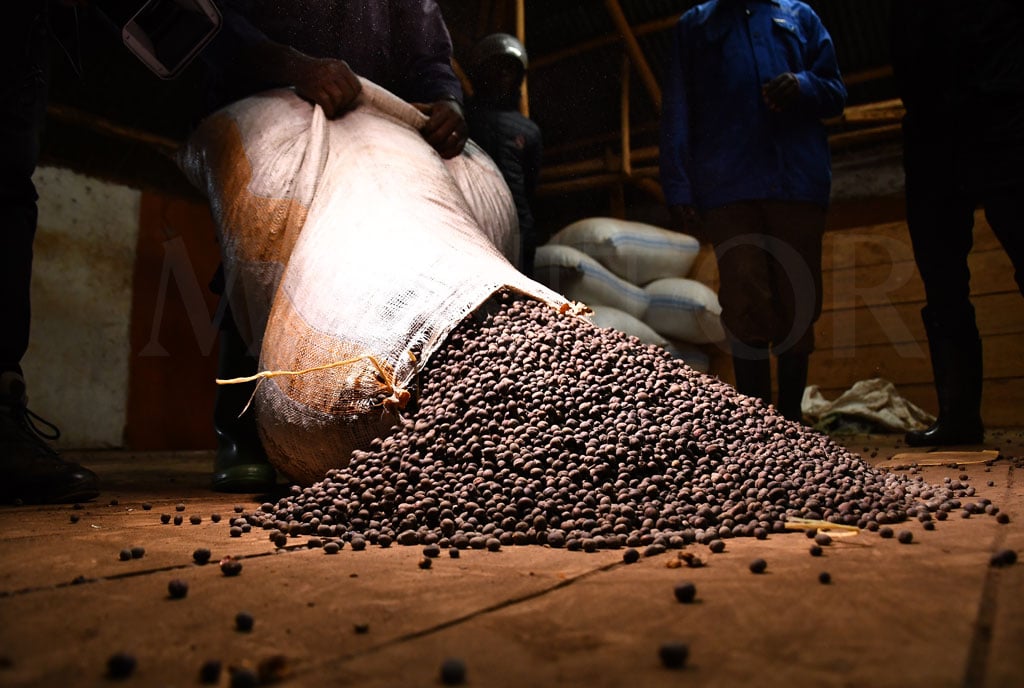
James Tayebwa Bamwenda. Photo/Courtesy
The Ugandan government’s policy of rationalizing its agencies has sparked heated debate, with significant implications for the Uganda Coffee Development Authority (UCDA). Established in 1991, UCDA was mandated to regulate, promote, and coordinate Uganda’s coffee industry.
The creation of the UCDA enabled the sector to thrive, contributing substantially to Uganda’s economy; by 2020, the coffee sector was generating over $500 million annually, exporting 5.4 million bags, and providing employment to nearly 4 million Ugandans.
UCDA’s efforts have positioned Uganda as Africa’s second-largest coffee exporter, a testament to the agency’s critical role in improving quality and market access.
The government’s recent rationalization agenda seeks to merge various agencies back into their parent ministries to curb costs and improve efficiency. Officials argue that the cost of maintaining Uganda’s 180 agencies, including UCDA, is too high relative to their output.
The Ministry of Finance has flagged these agencies as burdensome, suggesting that the UCDA’s functions could be effectively handled within the Ministry of Agriculture.
However, critics argue that absorbing UCDA would undermine the coffee sector’s progress, as the ministry lacks UCDA’s industry-specific expertise and agility.
UCDA’s independent structure allows it to respond effectively to coffee market demands, whereas integration could delay critical responses, eroding Uganda’s competitiveness.
Some observers attribute the government’s policy shift to ideological changes favoring centralized control, vital for state-led economic structures of the past. Others perceive a political motive, suggesting the government is consolidating control over economically powerful sectors in anticipation of the upcoming elections.
Pressure from international financial institutions, like the IMF and World Bank, may be a factor, as both encourage reforms that enhance efficiency.
These moves could come at the cost of sectoral autonomy, specialized oversight, and Uganda’s reputation with these international institutions. The country’s previous experiences with restructuring particularly, the sale of Uganda Commercial Bank (UCB) illustrate potential pitfalls.
The UCB sale weakened Uganda’s ability to direct domestic financial policy, a decision the President later publicly regretted.
This history suggests that merging UCDA could similarly undermine Uganda’s coffee sector, with long-term economic consequences, and should serve as a cautionary reminder.The controversial coffee deal with Italian investor Enrica Pinetti further complicates matters.
Granting exclusive coffee processing and export rights to Pinetti’s company, this deal bypasses UCDA’s established regulatory framework, raising transparency and economic sovereignty concerns. Critics argue that this undermines local coffee stakeholders, alienates Ugandan farmers, and could reduce investor confidence.
The Pinetti deal, like the 1990s privatisation of Uganda Commercial Bank, which weakened Uganda’s economic control, may have lasting negative implications for Uganda’s coffee industry.While rationalization promises cost savings, merging UCDA risks damaging Uganda’s coffee sector.
An alternative approach could include cost-sharing measures across agencies and stronger oversight for UCDA to address accountability concerns without compromising its focus.
Preserving UCDA’s autonomy ensures sector-specific expertise and ongoing support for farmers, essential to sustaining coffee production growth. And, reviewing the Pinetti deal could protect Ugandan coffee interests and sustain market confidence.
In summary, rationalization may lead to immediate fiscal savings, partly driven by financial constraints and a desire for streamlined governance. but the risk of stifling Uganda’s coffee sector’s progress is considerable.
This policy shift requires a balanced approach that considers the ideological, strategic, operational, tactical, and political implications in equal measure to avoid undermining the growth these agencies have fostered over the years.
It is very critical to evaluate whether the long-term benefits of independent agencies outweigh the immediate gains accruing from the mergers, and that is possible only through careful consideration of both financial and sectoral priorities, that Uganda can ensure its economic progress remains on a positive trajectory.
Tayebwa James Bamwenda is a PhD fellow in the Department of Sociology and Social Anthropology, at Makerere University.







